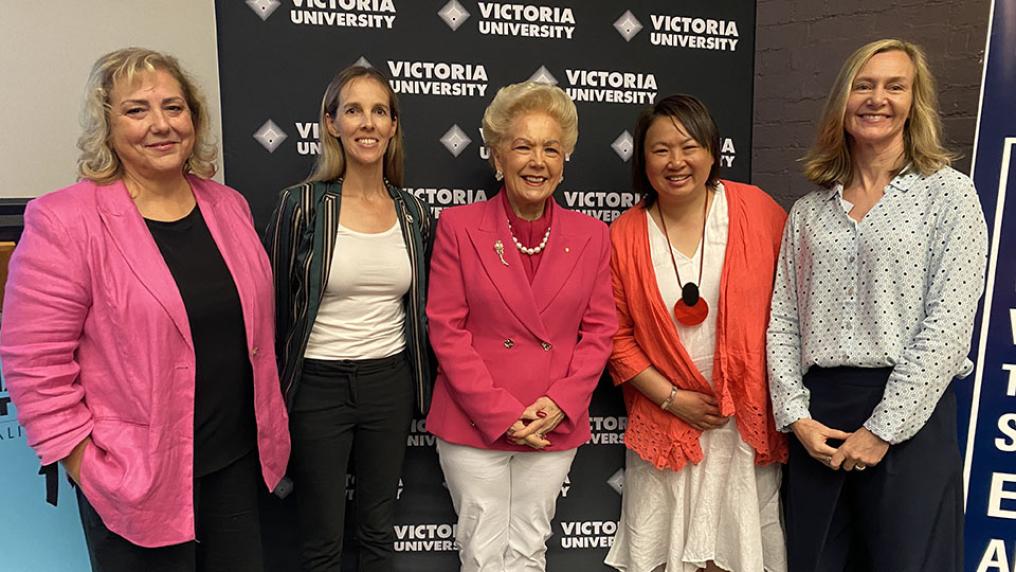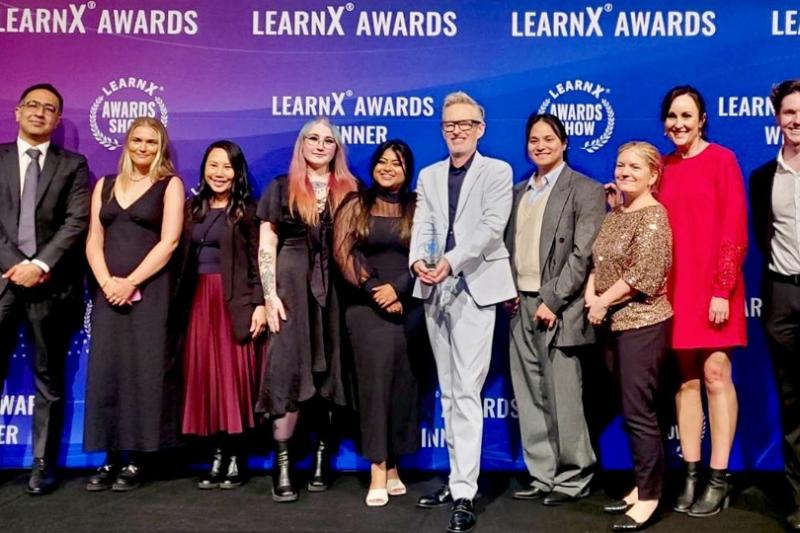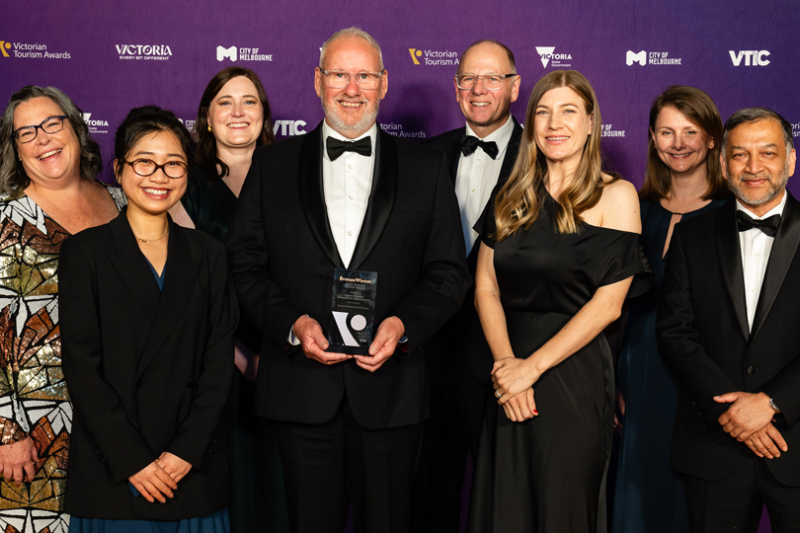Driving mental & physical health of girls & women in sport

In a first, Victoria University (VU) has teamed up with Exercise and Sports Science Australia (ESSA) to provide the sport sector with an evidence-driven professional development forum to build knowledge on practices to encourage leadership and participation for girls and women in sport.
The forums held in both Sydney and Melbourne ahead of International Women’s Day covered the latest in world-leading research VU has conducted in this space, and also offered practical, impactful tools for sporting organisations.
Susan Alberti Women in Sport Chair, VU’s Professor Clare Hanlon said the events were organised to provide evidence-based insights to stimulate organisational action and create opportunities for girls and women as leaders and players in sport.
“It is crucial to assist organisations in their drive to increase the number of girls and women in their sport. We as researchers and industry, need to work together to create a welcoming environment and drive actions,”
Professor Hanlon said.
“We are excited to also have Dr Susan Alberti open our session in Melbourne. Dr Alberti is well known for her passion and advocacy for women in sport.”
Four research topics were presented and workshopped:
1. Building capacity to encourage women from culturally diverse backgrounds as leaders in sport
Women from 110 cultural and ethnic groups other than Australian completed a survey to identify barriers to become leaders in sport. Findings revealed the majority of women who are current leaders are dissatisfied. Five key factors emerged that have been translated into strategies to attract and retain women from culturally diverse backgrounds.
These include: Even the 'playing field'; strengthen workplace culture; build support and opportunity; increase visibility; and create a welcoming environment. The research team formed 'A Guide for Action' to assist national to local sport organisations to encourage women from culturally diverse backgrounds as leaders in their organisation.
Download the guide: A guide for action to encourage women from culturally diverse backgrounds as leaders in sport (PDF, 4.19 MB)
2. A cross-sector approach to encourage women as leaders in male-dominated sectors
An intervention project aimed to work beyond sector silos and bring leaders from three male-dominated sectors (sport, trade and surgery) together to gain insights into challenges women encounter and learn about global good practices to attract and retain women as leaders.
It was also an opportunity to implement practical interventions to support women in workplace leadership positions and discuss and address challenges faced during that intervention. Four focus areas were targeted including career pathways, networking, mentoring, and gender bias. As a result, a co-designed ' Guide for Action' was created that provides recommended practices for organisations to embrace in future.
Download the full report: A cross sector approach to encourage women as leaders (PDF, 5.54 MB)
3. Participation and retention in sport for girls and women
More than 5,000 females who participated either in community club gymnastics or football (soccer) around Australia from 2019 to 2021 were tracked. About half the survey respondents had stopped participating, and the other half were still involved with their sport.
Nearly two thirds of those who left reported their main reason for stopping – especially for teenagers – was because they were not having fun. Other major reasons included losing interest, having an unfriendly coach or official, injuries, or feeling too old.
Full report (PDF, 886.05 KB) and resource (PDF, 1 MB) for organisations is available to download.
4. Mental health and wellbeing of women as semi and professional players
There is a critical need to advance the understanding of gender-specific factors that impact the mental health and wellbeing of Australian women athletes. A mixed-method approach to capture these factors was conducted. Findings revealed key themes such as financial security, experience of violence, and mental wellbeing and quality of life impacted on the success of semi-professional and professional female athletes.
Based on the research findings, recommendations to improve the experience of women athletes included; women athlete specific support, mental wellbeing assessment and monitoring, safeguarding from violence and financial insecurity, financial education, transition and post-athletic career support, and organisational safety and support.
Full report (PDF, 2.39 MB) and resource (PDF, 127.81 KB) for organisations is available to download.
These four projects were supported by funding from the Australian Government.



